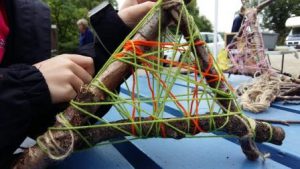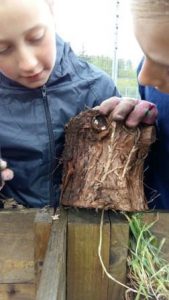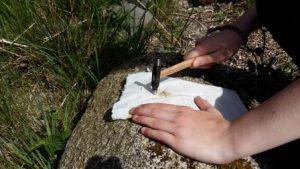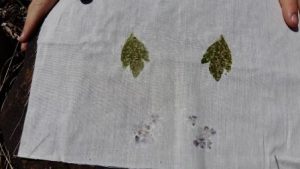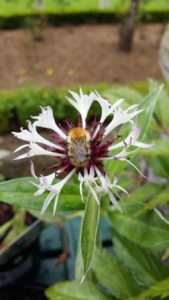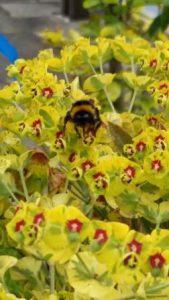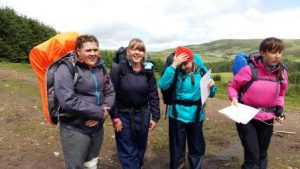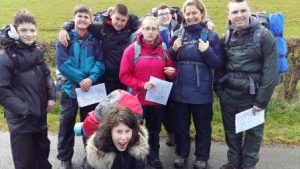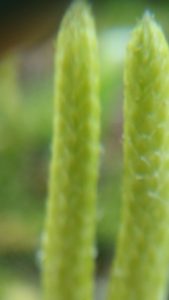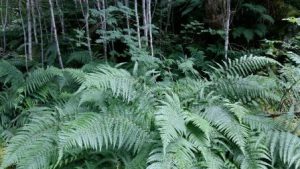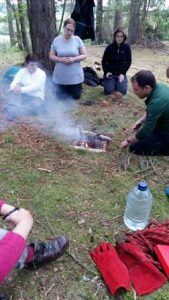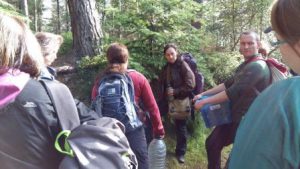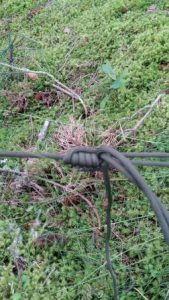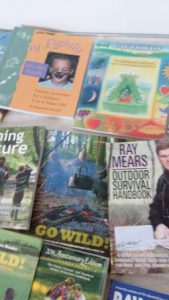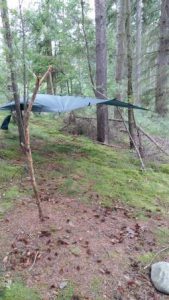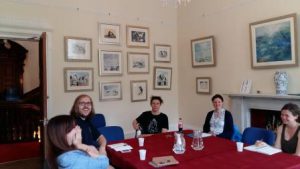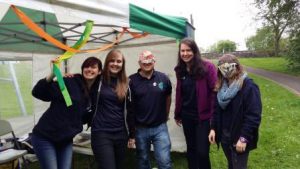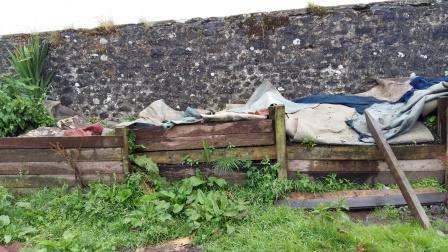
Hello, I’m Carolyn McFarlane and I’m one of two Natural Networks trainees (the other being Jenny Holmes) placed with East Ayrshire Outdoor Education. As this is my first blog since joining Natural Networks in January it could become a very long and tedious ramble about all that has gone on in the last 7 months! In an attempt to make this slightly less long and tedious, I’ll pick out some of the highlights of the traineeship. Here goes ….
Why become a Natural Networks trainee
I’ve always been someone who likes to be outdoors and has an interest in all things environmental. I trained as a primary teacher and became passionate about using the outdoors as a resource for learning. Why sit your pupils in a classroom surrounded by displays and artefacts provided entirely by you, the teacher, when you can step outside and experience a far richer resource (the outdoors!) than you could ever construct yourself!
I gave up being a primary school teacher to search out new ways to demonstrate that the outdoors is a brilliant place to learn. At the same time, I was desperate to spend more time outdoors myself. When the Natural Networks traineeship with East Ayrshire Council was advertised, I couldn’t believe that someone had written my dream job description and thrown in a personal training budget. Even better, this dream post was only a 30 minute drive from home!
TCV and East Ayrshire Council Schools
Our focus is primary schools though early on in the traineeship we had the chance to visit and work in secondary schools shadowing the TCV Senior Project Officer Susan Rutherford. Susan’s post came to an end at the end of June and we miss her. We learned a huge amount from her and had a lot of laughs rattling around East Ayrshire in the lovely TCV van.
Between Easter and the school summer break, and while waiting to find out if we would get a Food for Thought award (more about that below), we offered our services to primary schools. Our aim was to begin to demonstrate that it’s possible to deliver the entire curriculum outdoors. Our work leading up to the summer break highlighted to us the diversity of settings offered by East Ayrshire schools (some with loads of green space, some with less and some with really interesting green spaces on their door step) and highlighted the challenges faced by teachers hoping to spend more time outdoors.
We offered to lead some session outdoors and luckily for us some schools took us up on the offer! In a short time we saw big changes in pupil engagement with the outdoors (the excitement of finding a real life frog or an, initially very scary, shield bug couldn’t be replicated in a classroom; pupil interactions with adults changed completely in some cases (we had some really interesting conversations walking to and from our venues for the day!); and we had loads of fun finding out how lichen can be used to indicate air quality, how plants can be squished to extract natural dyes to create beautiful pictures (yay for Hapa Zomes!), how a bit of wool and a few twigs can be used to create some unique art work and test your fine motor skills and … so many other things. In the process, we met brilliant staff working very, very hard and willing to try out new things.
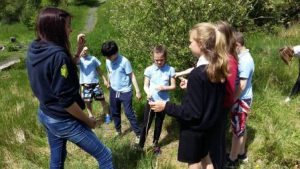
Food for Thought Funding for East Ayrshire Schools
Around about Easter time, and to help us progress our work with Primary schools, we put together a funding application to the Food for Thought Fund run by Education Scotland. The Food for Thought initiative is all about promoting better understanding of health, food and technologies and lends itself very easily to making use of school grounds as a place to learn.
Our application was successful and we were awarded approximately £16 000 to allow us to work with 7 schools. This will be used to buy tools and equipment and to create or further develop school grounds as places to grow food. The projects will also include habitats creation and food sources for pollinators. After all, one in three mouthfuls of food is only available thanks to the work of natural pollinators. In June, successful applicants from around Scotland were invited to an event at Celtic Park in Glasgow to find out more about Food for Thought. We also got to find out what’s going on in other schools – we were particularly excited to find out that quite a few schools are keeping chickens and some are even keeping bees!
Training
BEL and Duke of Edinburgh Award
I know the above mentioned Jenny has already blogged about some of our (mis)adventures in Basic Expedition Leadership training. I think we were sold the BEL training as a means to acquiring a very useful skill set for leading groups outdoors. What we didn’t realise was that it would also provide us with 2 days and 2 nights of squelching around Ayrshire on one of the wettest and coldest weekends of the year. On the second night our challenge was navigation in driving rain and pitch dark. Just to be perfectly clear, “Night navigation” involves counting your footsteps while walking on a compass bearing between set points. In this case, in the heaviest, coldest rain I have experiences in a long time. We did survive and we learned a lot about maps, stoves and all things camping related. In particular, Jenny and I learned that a 2 man expedition tent does not comfortably accommodate 2 people and their very wet kit!
I’m glad to say that things have got better since. We’ve been out with some secondary school expeditions and a highlight for me has been going out with staff and pupils on practice expeditions. I enjoy any excuse to be outside though I’ll admit one trip was more like a car rally. We navigated our way around the very narrow highways and byways of deepest East Ayrshire in an effort to keep up with Cumnock DofE groups apparently jogging from checkpoint to checkpoint. The torrential rain perhaps spurred them on a bit. The real challenge is finding time to plan, execute and log our own expeditions to meet the training requirements. The final BEL assessment is looming and the pressure is on!
Summer Training
Clearly training is a big part of Natural Networks. I’ve had so many opportunities to learn new skills and to add to my limited knowledge of invertebrates and plants. I managed to fit in 3 residential training courses in the month of July alone. Two were run by the Field Studies Council – one on Pollinators at the Millport Centre and the other on Fern ID at Kindrogan. Where else can you spend your entire day attached to a microscope or hand lens, stopping only for enormous servings of food? Thanks especially to Heather McHaffie at Kindrogan whose ability to spot and identify ferns from a moving vehicle cannot be matched, who taught us how to “shoot irises”, showed us flame throwing with club moss spores and taught us many other things pteridological (look it up!).
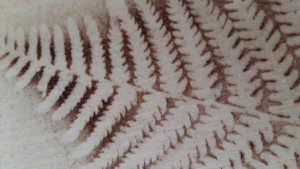
This is what’s left behind when you leave a fertile fern frond on the kitchen table for a week (or maybe more!)
The third residential course of the summer was with Wildthings! at Findhorn, a beautiful setting for Woodland Activity Leadership Training (WALT). We (myself and fellow NN trainees Lucy and Giovanna) opted to camp for 8 days. This was very, very character building but meant that we got a chance to practise our campcraft and bushcraft skills as we went along. I feel particularly proud of the kitchen-under-a-tarpulin we built in double quick time so that we could enjoy our gourmet savoury rice and lentils without the rain running down our necks! I don’t think I have ever been on a course that packed in so much in such a short time. It was exhausting but fun. Tiring but inspiring. There was no time for slacking but Jenny Martin (our Wildthings! instructor) did allow for 10 minute nap on a day our session ran on especially late. Passersby may have got a terrible shock to see 11 apparently unconscious WALTers laid out in the woods – the result of some horrible woodland catastrophe perhaps.
I came away from the whole WALT adventure with new knowledge, new learning and teaching tools and even more convinced that Learning Outdoors is essential. By not giving young people the opportunity to learn outdoors (to discover what a fascinating world it is out there and to have fun in the process) we are doing them and the planet a huge disservice. To quote from my WALT handbook which, in turn, quotes David Attenborough no less, “No one will protect what they do not first care about.”
And finally…
Working with supportive, friendly, funny colleagues
I have still to meet a Natural Networker/Natural Talent yet who isn’t all of the above. We, the Scottish contingent, are lucky in that we’re all located fairly close together (Jen and I after all sit about a metre apart most days!). The Scotland trainees find it pretty easy to stay in touch with each other (even me who is allergic to social media and doesn’t even like the phone that much). We meet regularly at training sessions, at events which involve bug hunts and marquees and have even been known to do a bit of socialising. I have had a fantastic 7 months with TCV and East Ayrshire and can’t believe that the time is flying past so quickly.
